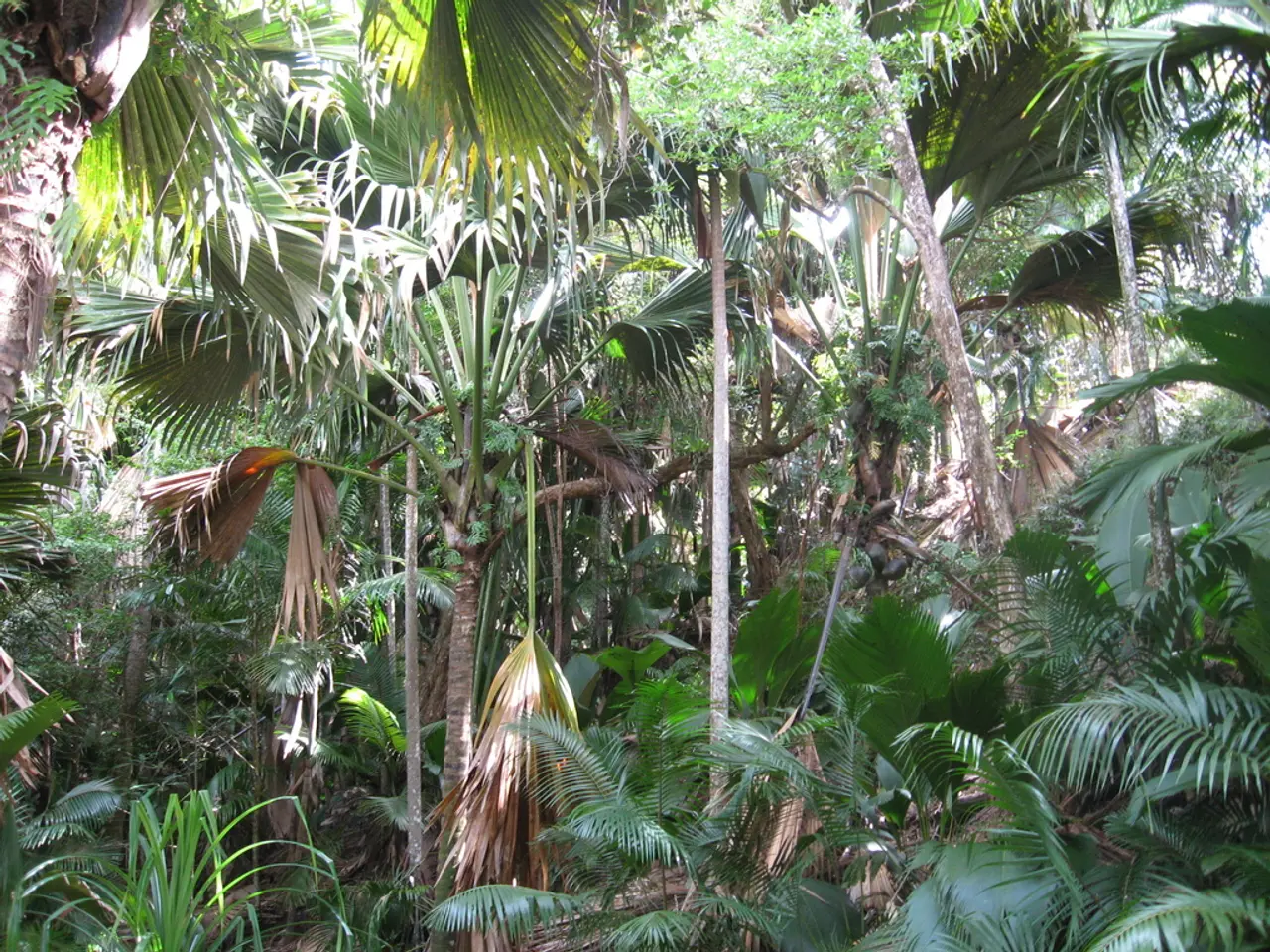Forest Restoration as a Measure for Ecological Preservation and Timber Harvesting
Italy is making strides in its forestry sector, with the wood industry emphasizing the need to increase domestic forest production to reduce imports. This push comes amidst growing concerns about climate change, as the country faces an increased risk of hydrogeological disasters and increasingly violent weather phenomena.
In an effort to combat these challenges, over 2,403,866 trees were planted in Italy in 2023. These projects, funded by both public and private sectors, saw a 14% decrease in tree planting compared to the previous year. Notably, the voluntary contributions of businesses accounted for 145,868 trees planted.
The president of Conlegno, Massimiliano Bedogna, suggests a focus on "productive planting" to create new added value and jobs in the forest bioeconomy. This approach aims to maximize recovery and recycling, improve technological innovation, increase the Italian wood harvesting rate, and develop automation and digitalization in the sector.
Conlegno is collaborating with Legambiente, with Conlegno being a partner of Legambiente's campaign on forest ecosystems. The Legambiente study provides a detailed map of interventions implemented in Italian regions. Two southern cities, Bari and Messina, occupy the top positions alongside Turin due to forestation interventions funded by the Climate Decree and PNRR funds. Trentino-Alto Adige has the most trees planted during the considered period, followed by Basilicata, Piedmont, and Puglia.
Afforestation, particularly in cities, is one of the most effective solutions to combat climate change in Italy. Forests ensure the availability of biodiversity and the functioning of forest ecosystems for future generations, with an estimated contribution of 2,342.5 euros per hectare per year. The mitigation of extreme climate events and regulation of air and soil quality contribute an additional 2,202.9 euros per hectare per year.
The impact on sustainable tourism and cultural activities is valued at 639.2 euros per hectare per year. While the 2023 Legambiente and AzzeroCo2 study does not provide specific figures for the economic benefits of urban and extra-urban tree planting projects, it estimates an annual benefit of 16,126,937.49 euros for each year of life of the planted trees and shrubs in Italy.
Conlegno also promotes "substitute" technologies with Rilegno projects to decrease the use of virgin wood in important applications. The organization aims to make the wood industry attractive to new generations and address the impending labor gap.
However, it's worth noting that in 2023, no new plantations funded by regional funds were reported in seven regions: Abruzzo, Campania, Lazio, Lombardy, Tuscany, Calabria, and Molise.
This news article highlights Italy's commitment to increasing its forestry efforts, reducing imports, and combating climate change. The benefits of these initiatives extend beyond environmental impact, contributing significantly to the economy and sustainable tourism.
- The wood industry in Italy is advocating for an increase in domestic forest production to reduce imports, responding to growing concerns about climate change and the associated risks of hydrogeological disasters and severe weather.
- Over 2,403,866 trees were planted in Italy in 2023, through a combination of public and private sector funding, although this represented a decrease of 14% compared to the previous year.
- Businesses in Italy contributed 145,868 trees through voluntary contributions, as part of a focus on productive planting to create added value and jobs in the forest bioeconomy.
- Conlegno, a major player in the forestry sector, is collaborating with Legambiente, focusing on forest ecosystems and interventions across Italian regions. Cities like Bari, Messina, and Turin have been particularly active.
- Afforestation, particularly in cities, is identified as one of the most effective solutions to combat climate change in Italy, with forests providing a range of economic, environmental, and cultural benefits.
- Conlegno is also promoting substitute technologies through Rilegno projects, aiming to decrease the use of virgin wood and attract new generations to the wood industry.
- However, it's concerning that no new plantations funded by regional funds were reported in seven regions: Abruzzo, Campania, Lazio, Lombardy, Tuscany, Calabria, and Molise, highlighting the need for consistent investment in the country's forestry efforts.




